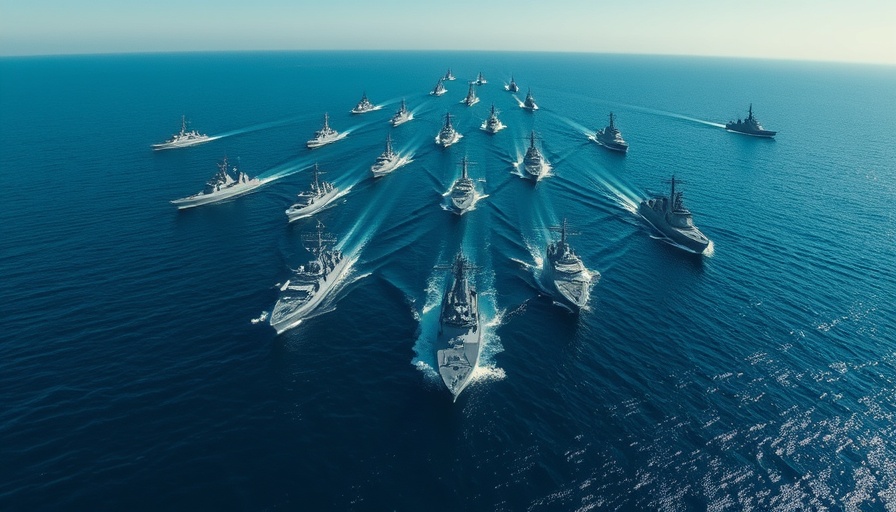
The Navy Embraces AI for Enhanced Data Processing
In an era where data generation is at an all-time high, the U.S. Navy is taking decisive steps to harness the power of artificial intelligence (AI) and machine learning (ML) for improved operational efficiency. With the goal of processing vast amounts of data quickly and accurately, the Navy is collaborating with the Defense Innovation Unit (DIU) to implement AI tools within its Maritime Operations Centers (MOCs).
Understanding the Need: Why AI Now?
The dynamic landscape of modern warfare demands a shift from traditional data handling methods to advanced technological solutions. Currently, MOCs must navigate myriad information sources, from satellite feeds to intelligence reports, to make critical decisions regarding resource allocations that affect geographically dispersed assets. The advent of programs such as the Situational Awareness by Intelligent Learning Systems (SAILS) is aimed at streamlining this process to enhance situational awareness.
Future Predictions: How AI Will Transform Naval Operations
Looking towards the future, the Navy's strategic Navigation Plan emphasizes integrating AI and robotics by 2027. This plan envisions not just theoretical applications but the practical deployment of proven robotic systems capable of operating autonomously. With these advancements, naval commanders will gain significant advantages in both efficiency and effectiveness, capable of responding to threats with greater agility.
The Applications: What's On the Table?
The DIU's recent solicitation outlines specific areas where AI could profoundly enhance MOCs. This includes workflow automation to streamline approvals, machine learning models that assess platform performance, and applications focused on resource management that consider geographic constraints. Proposals are expected to be user-friendly and modular, facilitating integration with existing and future Department of Defense (DoD) systems.
The Human Element: Commanders and Decision-Making
Importantly, the introduction of AI does not replace human judgment; instead, it enhances it. Commanders will be better equipped to interpret complex data and make informed decisions using insights generated by advanced algorithms. As they face an increasingly information-centric battlefield, AI could serve as a crucial ally in crafting strategic responses to threats.
Comparing AI Use in Other Sectors
Other sectors, such as healthcare and finance, have successfully integrated AI for data processing and decision-making, providing a roadmap for the Navy’s efforts. For instance, healthcare professionals use AI to analyze patient information, improving diagnostics and treatment strategies, which echoes the Navy’s goals in optimizing logistical operations. As both military and civilian sectors navigate the data explosion, parallels can be drawn in terms of the integration of AI.
Community Concerns: Balancing Innovation with Ethics
Amid these advancements, it is important to address concerns about ethical implications and potential job displacement among personnel. As AI becomes more entrenched within military operations, debates surrounding accountability, biases in algorithms, and the implications for human operators will need to be thoroughly examined.
While the Navy’s push towards integrating AI into data processing presents exciting opportunities, a balanced approach considering both innovation and ethical considerations will help ensure that these advancements serve the best interests of both the forces and society as a whole.
 Add Row
Add Row  Add
Add 




Write A Comment